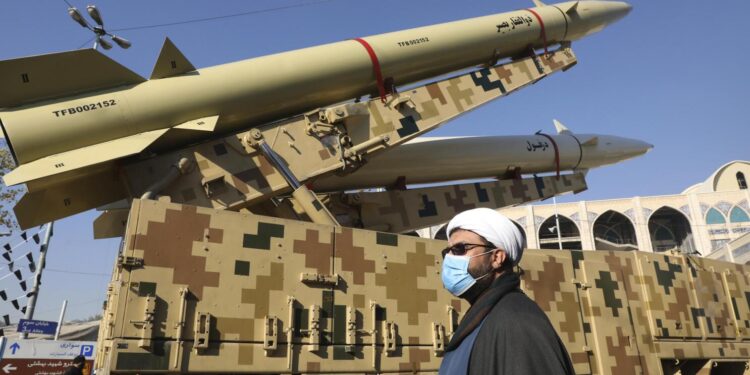Lagatar24 Desk
New Delhi: Tensions between the United States and Iran escalated sharply after former US President Donald Trumpthreatened “bombing the likes of which they have never seen before” if Iran failed to comply with American terms for a renewed nuclear deal. In a swift and bold response, Iran has reportedly readied its missile systems, capable of striking US-linked targets globally.
According to Iranian state-owned media Tehran Times, Iran’s armed forces have mobilised several missile units located in underground, airstrike-resistant facilities across the country. These launch-ready missiles are said to be equipped to strike strategic US interests if provoked.
Trump’s Bombing Warning
Trump’s remarks came during an interview with NBC News, where he reaffirmed his hardline stance on Iran’s nuclear ambitions. “If they don’t make a deal, there will be bombing,” he declared, reviving memories of his 2018 withdrawal from the Joint Comprehensive Plan of Action (JCPOA), also known as the Iran nuclear deal.
He further hinted at re-imposing secondary tariffs on Iran and its trading partners, indicating that future economic penalties would depend on Tehran’s next move.
Iran’s Military Response
In direct response, Iran’s media reported that its missile forces are now on high alert. The Tehran Times quoted unnamed defence sources, asserting that Iran’s strategic missile units remain positioned across fortified underground locations to withstand potential air offensives.
Though no formal military action has been taken, the signalling is clear: Iran is prepared for escalation should diplomatic overtures collapse.
President Pezeshkian’s Stance on Dialogue
Newly elected Iranian President Masoud Pezeshkian addressed Trump’s threats in a televised statement, criticising Washington’s history of “unfaithfulness” in negotiations.
He ruled out direct talks with the US but confirmed that indirect negotiations through Oman would continue. “The Supreme Leader has emphasised that indirect negotiations can continue,” Pezeshkian said. “They must prove they can be trusted. We are not avoiding dialogue, but trust must be rebuilt.”
Background: The Nuclear Deal Fallout
The original JCPOA, signed in 2015 under Barack Obama’s administration, was intended to curb Iran’s nuclear capabilities in exchange for sanctions relief. Trump pulled the US out of the agreement in 2018, citing flaws and concerns over Iran’s regional influence. Since then, diplomatic efforts to revive the deal have stalled, while Iran has continued to expand its nuclear enrichment program.
What’s at Stake
With Iran reinforcing its military posture and Trump renewing threats, geopolitical volatility in the Middle East is on the rise. A potential military confrontation could have far-reaching consequences, not just for the region, but for global oil markets and international diplomacy.







